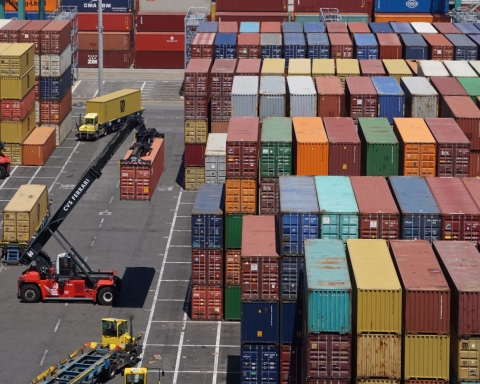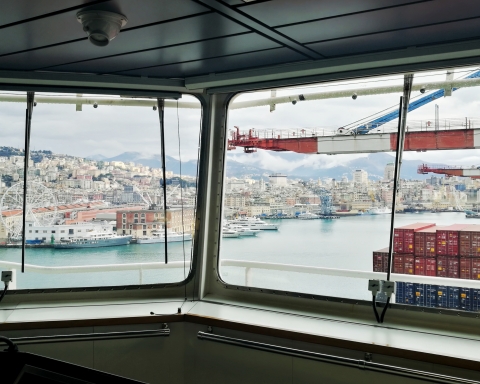In times of conflict like these, the decision of whether or not to use the risky Red Sea route can become a competitive parameter for the big carriers.
The Suez Canal option undeniably offers shipping companies infinitely less sailing time and transport costs than circumnavigating Africa.
Not only that, but the Suez route now allows liners to forge advantageous commercial ties with Saudi Arabia, which is in difficulty due to the current scenario. The unstable situation is creating quite a few problems in terms of imports and exports from the Red Sea. It also poses a threat to prestige projects such as Neom, the trillion-dollar megalopolis in the desert that is a major part of the Arab strategy of reducing national dependence on the oil economy.
This is also why Maersk recently announced that it was resuming sailings through the Suez Canal after having suspended them after attacks by the pro-Iranian Houthis.
In an update on 27th December, the Danish giant unveiled its plans to relaunch its Red Sea routes.
Out of a total of 150 vessels currently deployed on eight Asia-Europe services; four Middle-East services and four transpacific services, as many as 59 vessels will be transiting along the Suez Canal, while the remaining boxships will continue to sail to the Cape of Good Hope to avoid attacks by Yemeni rebels.
A few days after the international Prosperity Guardian operation was launched and 13 days after the partial blockade of the Red Sea transit, Maersk was the first carrier to announce a change of strategy on the East-West routes via Suez. CMA CGM followed suit, announcing similar plans. A Cosco ship, the Kilimanjaro, was spotted heading north-west towards Suez after it was announced eight days ago that it would be diverted to the African round trip.
MSC, whose vessel MSC United III was attacked in the Red Sea by the Houthi, sees it differently.
A spokesperson for Gianluigi Aponte’s Geneva-based company said their top priority was to safeguard lives and the safety of their crews, stressing that until their safety could be guaranteed, MSC would continue to reroute its ships booked to cross the Suez Canal to the Cape of Good Hope.
The dynamics of the last few months of 2023 have been highly volatile, due to the various risk factors that have been juxtaposed at geo-political level. What carriers are trying to do is to optimize the return-risk ratio by focusing on active, diversified management of their fleets.
Some shipping companies consider calculated risk assessment a strategic weapon which secures them a competitive advantage over other competitors.
But it could also be a gamble. According to Vespucci Maritime’s CEO Lars Jensen, a sudden deterioration of the geopolitical scenario in the Red Sea area would allow carriers who prudently decided to stay on the alternative African route to continue offering stable services to their customers. On the other hand, in Mr. Jensen’s opinion, carriers that have decided to switch back to Suez, relying on careful and calculated risk management, could be forced to discontinue their services again, to their customers’ inconvenience.
Translation by Giles Foster




